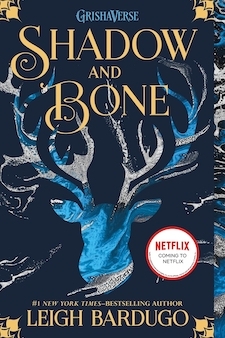What are you reading in April?

In our monthly book club, we discuss whatever we happen to be reading and ask everyone in the comments to do the same. What Are You Reading This Month?
The Life Of The Mind by Christine Smallwood
Despite what publicists and jacket-copy writers might have you believe, there are way more readers out there who appreciate, and even prefer, novels in which not a whole lot happens. “Page-turner” needn’t only apply to the action-filled or plot-driven. That’s not to say that things don’t happen in Christine Smallwood’s The Life Of The Mind (March 2, Hogarth), which centers on English adjunct Dorothy in the days and weeks following her miscarriage due to a blighted ovum. (The writer structured her debut novel around the prolonged, intermittent bleeding of her main character, who views her body with a matter-of-fact curiosity.) Dorothy grades papers, rides the subway, attends a literary conference. Scenes set around a karaoke party and an underwater puppet show (!) are given the kind of symbolic weight one might more likely see in short fiction. As with so many exemplary novels in which plot is not the driving force, the main attraction of The Life Of The Mind is the prose itself. Writing in a close third-person, Smallwood firmly places her story within Dorothy’s consciousness, and it’s the clarity of the character’s thinking that pulls the book swiftly along. “Dorothy liked hugging. Hugging was a way of demonstrating affection that also involved hiding your face,” Smallwood writes. Such lines are illustrative of so much of what’s enjoyable about this deceptively potent book: They’re droll, a little melancholy, and stunningly precise. [Laura Adamczyk]
Shadow And Bone by Leigh Bardugo
I grew up with HeartQuest books, which were like choose-your-own-adventure books but published by TSR Inc., the former publishers of Dungeons & Dragons. So I will always have a soft spot for stories about young women who are ripped from everything they’ve known (usually in under 10 pages) and cast into some extraordinary role or setting. Leigh Bardugo’s Shadow And Bone, the first book in her Grishaverse saga, certainly fits the bill. Young Alina finds out she has immense magical powers after surviving a gruesome attack on her regiment in the Fold, a barrier both physical and figurative in the war-torn world of Bardugo’s imagination. You know the rest: She has to train, then question her place in this war, etc. The beats are familiar, as are the locales—Ravka is a fantasy analog for Russia; Shu, for China—but the book’s nimble prose and rich detail engross as much as the unfolding adventure. Eric Heisserer’s adaptation of Shadow And Bone will be out on Netflix on April 23, which means I’ll have an added layer of (dis)satisfaction after checking out season one. [Danette Chavez]
Pale by John McCrae
I’ve been a fan of the works of John “Wildbow” McCrae for a few years now, ever since coming across his debut serialized novel, the online superhero drama Worm, during one of my regular, brain-eroding TV Tropes binges. McCrae’s works—including the supernaturally inclined Pact, the Frankenstein-riffing Twig, and his current work, Pale—all serve up serialized red meat in abundance: raw emotions, escalating bad situations, and the ever-important cliffhanger that keeps you logging on for another week. But the aspect that’s currently keeping me glued to Pale—way too late, most nights—is McCrae’s talent for devising intricate systems for his characters to exploit, or maybe just get trapped in. Worm flourished in its initial run, at least in part, because of McCrae’s talent for thinking up inventive new superpowers and finding ways to apply an ability like its protagonist’s “control over bugs” in endlessly unexpected ways. Pale protagonists Verona, Lucy, and Avery have a far more diverse power set at their disposal, but the magical world in which they exist is also far more punishing and cruel—but never capricious. For someone who likes their fantasy lit heavy on rules, dangers, and clever loopholes, it’s incredibly compelling stuff, the kind that keeps me tuning in week in and week out to discover how they’re going to get out of the next clearly inescapable problem they’ve gotten themselves into with their latest last-ditch effort to survive. [William Hughes]